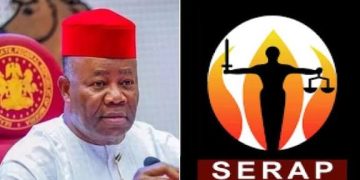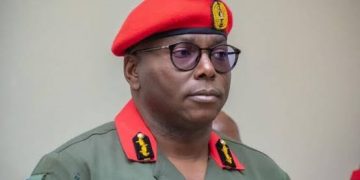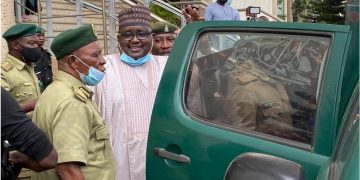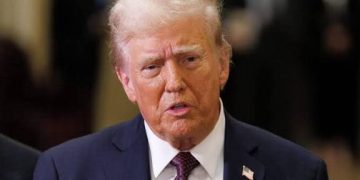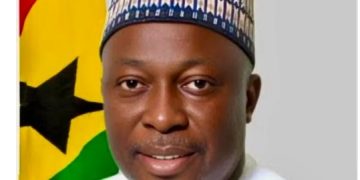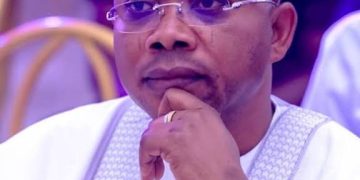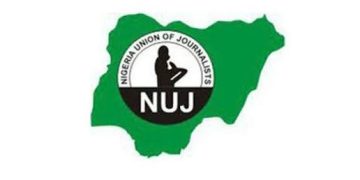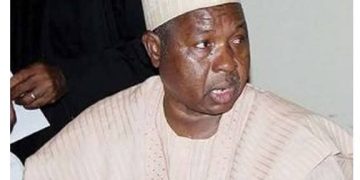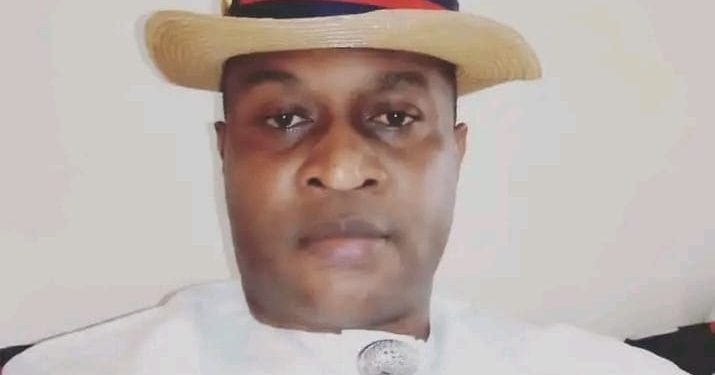The recent strong response from the United States regarding Nigeria’s security crisis may well serve as an awakening call for the Nigerian government to take decisive action. Reports of religiously motivated violence, particularly against Christians, continue to draw global attention, raising concerns about the nation’s slow response to escalating insecurity.
Sending soldiers, in diplomatic terms, represents one of the strongest signals of a nation’s commitment or warning to potential aggressors, but does this represent both? It is both a show of strength and a statement of intent. Yet, the question remains: why has the Nigerian government been hesitant to confront these violent attacks head-on?
The most visible rationale, analysts suggest, lies in the government’s engagement in multiple internal security challenges from insurgencies in the North-East to communal clashes and rising banditry across several regions. However, this explanation no longer satisfies the growing concern that the Nigerian state is failing to protect its citizens effectively.
U.S. intervention, if it ever materializes, would not be unprecedented. Deploying American troops has long been a tool of U.S. foreign and national security policy a means of advancing strategic interests abroad through both military and non-military operations. But what does it mean when an American president orders the Department of Defense to prepare for possible military action in Nigeria?
It all began when U.S. Republican Senator Ted Cruz became increasingly vocal about the killing of Christians in Nigeria an issue the Nigerian government has repeatedly denied. Senator Cruz warned that the United States could “immediately stop all aid and assistance to Nigeria” unless the government “moves fast” to address the situation.
In a dramatic escalation, former U.S. President Donald Trump declared that he had ordered the Defense Department to prepare for potential military action in Nigeria, accusing the government of failing to stop violence against Christians. In his statement, Trump said the U.S. “may very well go into that now guns-a-blazing, to completely wipe out the Islamic terrorists who are committing these horrible atrocities.”
While this rhetoric has found sympathetic ears among some Nigerians frustrated with insecurity, human rights activist Omoyele Sowore cautioned that such threats of foreign intervention, though emotionally appealing, often carry dangerous implications. Sowore reminded Nigerians that U.S. military involvement has historically left nations more destabilized pointing to Afghanistan, Iraq, Libya, and Syria as painful lessons in failed interventions.
Indeed, whether Christian, Muslim, animist, or non-religious, no one should welcome the idea of foreign boots on Nigerian soil. True peace cannot be imported. The United States and its allies, despite their might, have not been able to deliver lasting stability to the countries they have intervened in.
What Nigeria truly needs is not a foreign savior but responsible and accountable leadership one that protects all citizens, enforces justice, and dismantles the deep-rooted cycles of corruption and impunity that have crippled the nation. The global sympathy currently being expressed, particularly for persecuted Christians, should serve as a moral mirror for Nigerian authorities to reflect on their responsibilities.
The international spotlight has grown brighter. Even global celebrities are taking notice. Popular American rapper Nicki Minaj publicly expressed gratitude following President Trump’s designation of Nigeria as a “country of particular concern” over alleged religious persecution a move that further amplifies international pressure.
Yet, amid this global concern, Nigerians must remember a crucial truth: deliverance will never come from abroad. Real transformation must come from within through courageous leadership, civic engagement, and social justice. As a journalist and human rights advocate, I believe that international scrutiny, however uncomfortable, may still drive positive change if it compels our leaders to act responsibly.
Senator Ted Cruz’s continued advocacy portrays global pressure. His commitment to introducing legislation aimed at sanctioning Nigerian officials who “implement or support blasphemy and Sharia laws” highlights a growing impatience within the international community toward Nigeria’s handling of religious freedom.
In the end, this moment presents both a warning and an opportunity. The warning is clear, the world knows about Nigeria’s insecurities problems. The opportunity lies in reclaiming our moral and political authority through decisive domestic action. If our voices, our journalism, and our advocacy can echo across the globe, then perhaps even the controversy surrounding America’s involvement may push Nigeria toward long-overdue reform.
Daniel Nduka Okonkwo is a seasoned writer, human rights advocate, and public affairs analyst, widely recognized for his incisive commentary on governance, justice, and social equity. Through his platform, Profiles International Human Rights Advocate, he has consistently illuminated critical social and political issues in Nigeria and beyond, championing accountability, transparency, and reform. With a portfolio of more than 1,000 published articles available on Google, Okonkwo’s works have appeared in prominent outlets such as Sahara Reporters and other leading media platforms. Beyond journalism, he is an accomplished transcriptionist and experienced petition writer, known for his precision and persuasive communication. He also works as a ghostwriter and freelance journalist, contributing his expertise to diverse projects that promote truth, integrity, and the protection of human rights.

